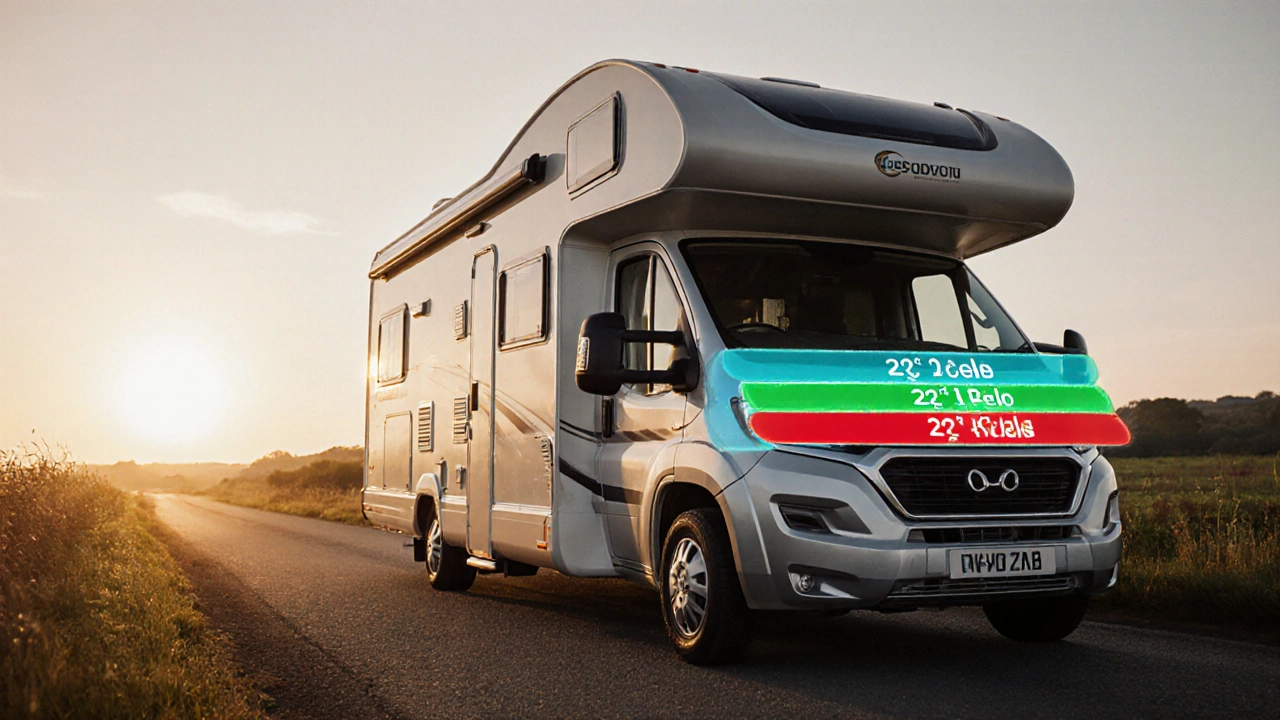RV Safety Tips: Keep Your Motorhome Trips Safe and Stress‑Free
Heading out in a motorhome feels like freedom, but a safe trip starts with a few simple habits. Before you fire up the engine, take a minute to run through a quick safety checklist. A few minutes now can save you headaches later, whether you’re parked at a campsite or cruising down the M4.
Common Hazards and How to Avoid Them
Most RV mishaps come from three sources: fire, rollovers, and poor parking. First, fire. Keep a working extinguisher within arm’s reach, and never store flammable liquids near the stove or heater. Check the gas line for leaks every week – a simple soap‑water test will show bubbles if there’s a problem.
Second, rollovers. Because a motorhome sits high, a sudden turn can tip it. Drive slower around sharp bends and use the 3‑second rule: keep at least three seconds between you and the car ahead. This gives you extra reaction time on winding roads.
Third, parking. Many campsites have uneven ground. Before you settle in, level the chassis with wheel chocks and make sure the stabilisers are down. This stops the RV from rocking when you open doors or step out of the shower.
Safety Gear and Checklist
Having the right gear is half the battle. Pack these items in an easy‑to‑reach bag:
- Fire extinguisher (rated 4A:40B:C)
- First‑aid kit with bandages, antiseptic, and pain relievers
- Spare fuses and a basic tool kit
- Portable carbon monoxide detector
- Extra flashlight and batteries
When you arrive at a new site, do a quick walk‑around. Look for loose steps, check the hitch, and confirm the water and electric hookups are secure. If you’re using a propane stove, open a window for ventilation and never leave it on unattended.
Driving tips are easy to remember: keep windows up during high winds, tie down heavy items in the storage compartments, and always wear your seatbelt. If you’re pulling a trailer, make sure the load is balanced and the brakes are synced.Finally, stay informed. Sign up for alerts from local parks, check weather forecasts before heading out, and keep an eye on road conditions using apps or radio traffic reports. A little foresight means you won’t be caught off‑guard by sudden rain or a closed campground.
RV safety isn’t about being paranoid; it’s about enjoying the open road with peace of mind. Follow these basics, adjust them to your own setup, and you’ll spend more time exploring and less time worrying.
-
 VIEW POST
VIEW POSTUnderstanding the 2-2-2 Rule for RVs: A Practical Guide
Oct, 8 2025|0 CommentsLearn what the 2-2-2 rule for RVs is, why weight distribution matters, and how to apply it step‑by‑step for safer, smoother travels. -
 VIEW POST
VIEW POSTIs Boondocking at Walmart Safe? Essential Tips, Rules & Safety for RVers
Jul, 4 2025|0 CommentsCurious if it’s safe to boondock overnight at Walmart? Discover practical tips, real safety stories, and RV parking rules for hassle-free RV stays.